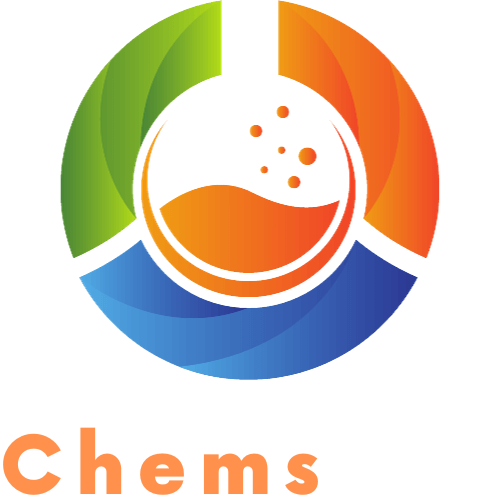3-CMC, also known as 3-Chloromethcathinone, is a synthetic stimulant drug that belongs to the cathinone class. It has gained popularity in recent years, and its effects on the mind, body, and society have become a topic of interest. In this article, we will delve into the impact of 3-CMC, exploring its chemical composition, psychological effects, physical impact, social consequences, long-term effects, strategies for dealing with addiction, and expert advice on the subject.
Exploring the Chemical Composition of 3-CMC and its Effects
The chemical composition of 3-CMC is similar to other cathinone derivatives, with slight differences in its molecular structure. This synthetic compound acts as a central nervous system stimulant, affecting the levels of neurotransmitters such as dopamine, norepinephrine, and serotonin in the brain.
The effects of 3-CMC are primarily stimulatory, leading to increased energy, alertness, and euphoria. However, it is essential to note that the use of 3-CMC can also result in adverse effects such as increased heart rate, elevated blood pressure, and potential cardiovascular complications.
The exact mechanisms of action and long-term effects of 3-CMC are still under investigation, and further research is needed to fully understand its impact on the body.
Unraveling the Psychological Effects of 3-CMC on Cognitive Functions
When consumed, 3-CMC affects cognitive functions, including attention, memory, and decision-making. Users may experience heightened focus and increased sociability, but these effects can be short-lived and may be followed by periods of fatigue and mental exhaustion.
Some individuals report experiencing anxiety, paranoia, and even hallucinations after using 3-CMC. These psychological effects can vary depending on the dosage, frequency of use, and individual susceptibility.
It is crucial to highlight that the long-term psychological effects of 3-CMC are not well-documented, and more research is necessary to understand the potential risks associated with its use.
The Physical Impact of 3-CMC: A Comprehensive Analysis
3-CMC has a range of physical effects on the body, both short-term and potentially long-term. Some common short-term physical effects include increased heart rate, elevated blood pressure, dilated pupils, and decreased appetite.
However, prolonged or excessive use of 3-CMC can lead to more severe physical consequences. These may include cardiovascular complications, such as heart palpitations, chest pain, and even heart attacks. Additionally, users may experience dehydration, muscle tension, and difficulty sleeping.
It is crucial to note that the physical impact of 3-CMC can vary depending on individual factors such as overall health, dosage, and frequency of use. Consulting with a healthcare professional is advised to better understand the potential risks and minimize harm.
Understanding the Social Consequences of 3-CMC Consumption
The consumption of 3-CMC can have significant social consequences. Individuals under the influence of 3-CMC may exhibit risky behavior, impaired judgment, and increased aggression. This can strain personal relationships, lead to conflicts, and have a negative impact on social interactions.
Moreover, the use of 3-CMC can contribute to the perpetuation of drug-related crimes and pose a threat to public safety. The presence of 3-CMC in society necessitates awareness and education to mitigate its adverse social consequences.
Examining the Long-term Effects of 3-CMC on Health and Well-being
While the long-term effects of 3-CMC on health and well-being are not yet fully understood, it is crucial to acknowledge the potential risks associated with its consumption. Prolonged use of 3-CMC may lead to physical and mental health problems, including addiction, cardiovascular complications, cognitive impairments, and psychiatric disorders.
It is essential for individuals who use 3-CMC to be aware of the potential long-term effects and seek support from healthcare professionals to minimize harm and promote overall well-being.
Overcoming the Dark Side: Strategies for Dealing with 3-CMC Addiction
3-CMC addiction is a serious concern, and overcoming it requires a comprehensive approach. Here are some strategies that can be helpful:
- Seeking professional help: Consulting with addiction specialists, therapists, or counselors can provide guidance and support throughout the recovery process.
- Joining support groups: Engaging with support groups, such as Narcotics Anonymous, can provide a sense of community and understanding.
- Creating a support network: Surrounding oneself with individuals who support recovery and avoiding environments that may trigger drug use can be beneficial.
- Developing healthy coping mechanisms: Engaging in activities such as exercise, meditation, and pursuing hobbies can help manage cravings and reduce the risk of relapse.
- Considering medication-assisted treatment: In some cases, medications may be prescribed to assist with the recovery process and alleviate withdrawal symptoms.
Frequently Asked Questions about Effects of 3-CMC
Q: What are the short-term effects of 3-CMC?
A: The short-term effects of 3-CMC include increased energy, alertness, and euphoria, as well as potential adverse effects such as increased heart rate and elevated blood pressure.
Q: Can 3-CMC cause addiction?
A: Yes, 3-CMC has the potential for addiction. Prolonged use and excessive doses can lead to dependence and subsequent withdrawal symptoms.
Q: Are there any long-term health risks associated with 3-CMC?
A: The long-term health risks of 3-CMC are not yet fully understood. However, prolonged use may lead to cardiovascular complications, cognitive impairments, and mental health issues.
Q: How can I help someone struggling with 3-CMC addiction?
A: Supporting someone struggling with 3-CMC addiction involves providing empathy, encouraging professional help, and promoting a supportive environment that fosters recovery.
Expert Advice on Effects of 3-CMC
It is essential to approach the use of 3-CMC with caution and awareness of its potential risks. Consulting with healthcare professionals, staying informed about the latest research, and seeking support are crucial steps towards minimizing harm and promoting well-being.
Remember, your health and safety should always be a top priority. If you or someone you know is struggling with 3-CMC addiction, reach out for help and support.
